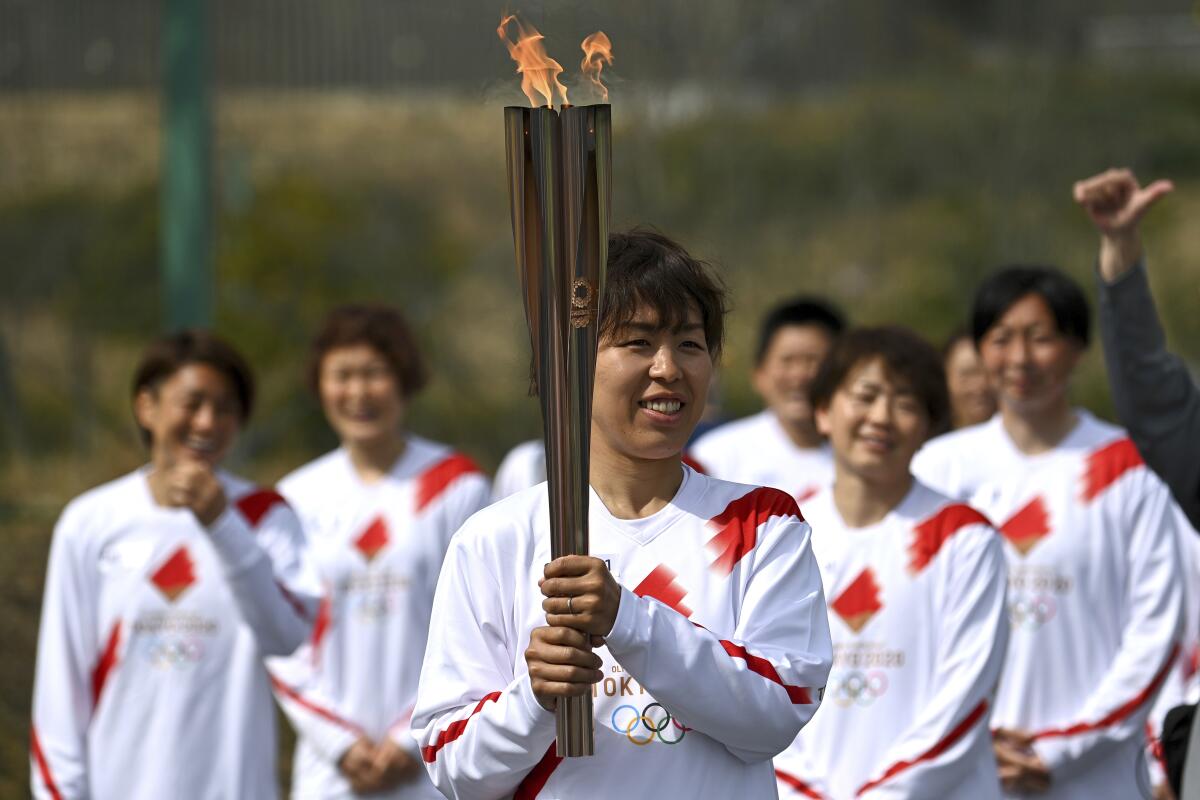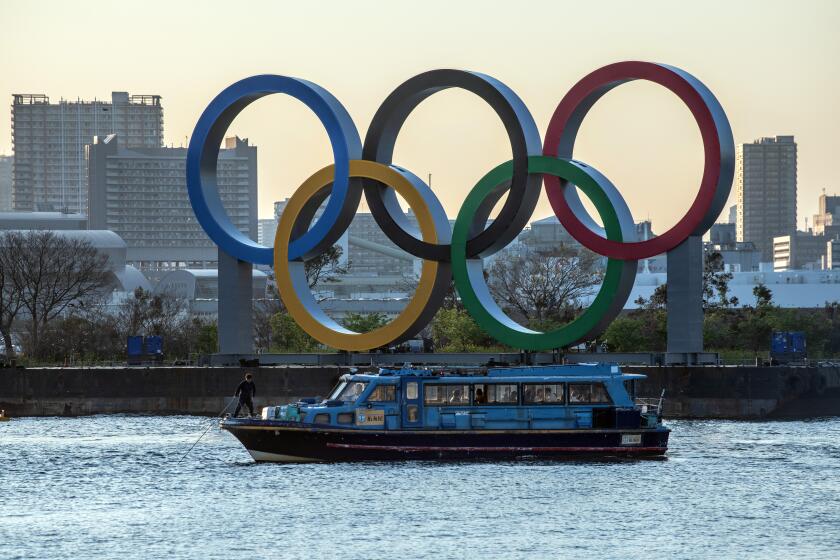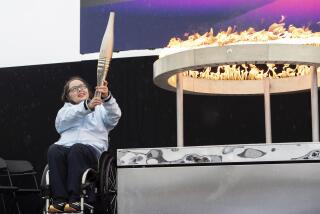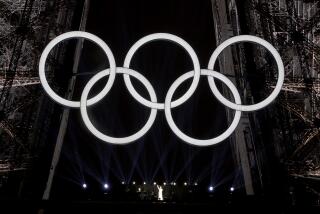Olympic torch begins its 121-day relay across Japan

- Share via
TOKYO — The torch relay for the postponed Tokyo Olympics began its journey across Japan on Thursday, a 121-day odyssey that will conclude in the capital at the Summer Games’ July 23 opening ceremony.
The relay began in northeastern Fukushima prefecture, the area that was devastated by the 2011 earthquake, tsunami and the meltdown of three nuclear reactors. About 18,000 people died in the catastrophe.
The first runner with the torch was Azusa Iwashimizu, a key player on the Japanese national team that won the Women’s World Cup in 2011.
Wearing a white track suit, she carried the torch out of the J-Village indoor soccer training center and was surrounded by 14 other members of the World Cup squad, with coach Norio Sasaki at the rear. All were decked out in white track suits.
The ceremony was closed to the public because of the fear of spreading the coronavirus but was streamed live.
“The torch of Tokyo 2020 will become a bright light for hope for Japanese citizens and citizens in the world and a light at the end of the tunnel,” said Seiko Hashimoto, president of the local organizing committee and a former Olympian.
Spectators from abroad will be barred from the Tokyo Olympics when they open in four months.
Homare Sawa, the biggest star on the 2011 World Cup team, missed the ceremony. She is being treated for a condition affecting her inner ear.
Fans are being told to maintain social distance along the roadside as the torch passes and to refrain from loud cheering. Organizers have said they would stop or reroute the relay if crowding becomes a problem during the four-month journey.
Spectators cooperated in Naraha, a town just down the road from where the torch started its trip. A few hundred people stood on the roadside and were safely spread out.
“At first I didn’t think much of it,” said 20-year-old Takumu Kimura. “But when I actually saw it, it felt like yes, it’s the Olympics.”
As much money is at stake, the Summer Olympics in Tokyo have to be canceled, writes columnist Dylan Hernández.
Setsuko Hashimoto, a 63-year-old local resident, was emotional as the torch passed.
“Ten years ago there was a nuclear accident, so it felt like I could really look forward to something and live,” she said. “It was very touching.”
Prime Minister Yoshihide Suga called the relay “a valuable opportunity for the people to get a real sense of the Olympics and Paralympics that are approaching.”
Organizers confirmed a bit of bad luck: The torch’s flame was blown out during one leg of the relay. As has happened in other Olympics, it was re-ignited by a backup lantern that also carries the flame, which was first kindled in Greece more than a year ago.
Go beyond the scoreboard
Get the latest on L.A.'s teams in the daily Sports Report newsletter.
You may occasionally receive promotional content from the Los Angeles Times.
Local organizers and the International Olympic Committee hope the relay will turn public opinion in Japan in favor of the Olympics. Polling so far is overwhelmingly negative, with about 80% of respondents suggesting another delay or cancellation.
The relay and the Olympics both stir fear that the events could spread the coronavirus. There is also opposition to the soaring cost of staging the Olympics, now put officially at $15.4 billion. Several audits suggest that it’s actually twice that much, and an Oxford University study says that these are the most expensive Olympics on record.
About 10,000 runners are expected to take part in the torch relay, hitting all of Japan’s 47 prefectures.
After the postponement of the Games a year ago, there was early talk of eliminating the relay to save money. However, that idea was quickly dropped. The relay is heavily sponsored by Coca-Cola and Toyota.
Organizers announced a few days ago that fans from abroad will be banned from attending the Olympics and Paralympics to prevent coronavirus spread. Most volunteers from abroad have also been ruled out.
Organizers are to announce the venue capacities in April. Ticket revenue was originally projected at $800 million but will be severely reduced by the lack of fans.
More to Read
Go beyond the scoreboard
Get the latest on L.A.'s teams in the daily Sports Report newsletter.
You may occasionally receive promotional content from the Los Angeles Times.









